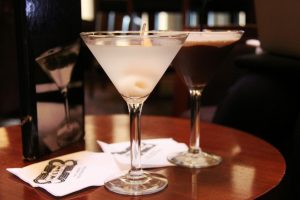 We have been approached on a number of occasions to provide guidance on the compliance implications of the sale of liquor by licensees on behalf of a third party, namely charities and not for profit organisations to assist fund raising.
We have been approached on a number of occasions to provide guidance on the compliance implications of the sale of liquor by licensees on behalf of a third party, namely charities and not for profit organisations to assist fund raising.
Before addressing how this may happen without leaving the licensee open to possible compliance problems under Queensland liquor laws, let us first look at the general nature of this type of arrangement.
Many commercial dealings are undertaken by one person on behalf of another. An employee might purchase goods or services on behalf of that person’s employer; a company director might enter into a contract on behalf of the company and so on. The employee or director is the agent, the employer or company is the principal and in general terms the actions of the agent bind the principal.
The agent and principal scenario presents itself when a licensee is working with a charity or not for profit organisation to provide a liquor service at a fund raising event. The charity or not-for-profit, as an “eligible entity” under Section 13 of the Liquor Act, enjoys an exemption from requiring a licence or permit to sell liquor at the event. However, the exemption does not apply if the liquor is sold by a commercial licensee, so the two parties must set up an agency agreement for the event.
The basis of the agency agreement is simple enough: the licensee will provide a liquor service at the event, as an agent of the eligible entity, with net proceeds from sales retained by the principal. To avoid complications, there are a number of things to consider:
- Documentation – although an agreement does not need to be in writing to be binding, if there are any questions regarding who is benefitting from the sale of liquor at the event (noting that an investigation might be undertaken several months later) clear documentation will be invaluable. Email exchanges are perfect for this type of thing as they are easy to keep, can be saved as conversations by most email clients and are recognised by statute as legally binding.
- Ownership – if the liquor is being supplied by the eligible entity through the agency of the licensee, it makes sense that the eligible entity must be the owner of the liquor prior to its sale to the end consumer. If the agent licensee is supplying the liquor, (possible for a commercial hotel or producer/wholesaler licensees) the eligible entity must be invoiced for the liquor at some point. The documentation should include reference to the invoicing, payment, storage and return arrangements.
- Net proceeds – for an event to be exempt “all the net proceeds from the sale of liquor will be used for the benefit of the community”. This clearly does not mean all of the takings for liquor sales, rather the amount left after costs. Costs would of course include the purchase price of the liquor, but may also include transport, refrigeration, labour and any other legitimate costs associated with the liquor supply. It is important that the costs are fair and reasonable and not inflated.
- Payment – while legal ownership of the liquor has been transferred to the eligible entity, the licensee retains possession of the stock, dispenses it to paying customers at the event and collects money as an agent of the eligible entity. At the end of the event it is permissible for the licensee to provide an adjusted invoice to the eligible entity and retain the amount due from the day’s takings. The balance of the funds is paid to the eligible entity.
Having regard to the above, there are opportunities for licensees and non-profit organisations to work together for mutual benefit. The eligible entity gains access to a new fundraising opportunity and the licensee enjoys the benefits of sponsorship: exposure, positive public relations etc., for a very low real cost. With planning and proper documentation, this can all be achieved within the bounds of Queensland’s generally restrictive liquor laws.
 There has been some confusion in the industry regarding how this will work. OLGR has recently clarified the process and most licensees would have received the following information by email:
There has been some confusion in the industry regarding how this will work. OLGR has recently clarified the process and most licensees would have received the following information by email: Liquor Guideline 60 has been out now in its present form for a number of years. Many licensees would understand that it has been expressly issued under Section 142ZZ(4) of the Liquor Act, and therefore must be taken as seriously as any other licensee obligation. It sets out in detail rules for practices and promotions involving liquor, including practices and promotions which are described as “unacceptable”.
Liquor Guideline 60 has been out now in its present form for a number of years. Many licensees would understand that it has been expressly issued under Section 142ZZ(4) of the Liquor Act, and therefore must be taken as seriously as any other licensee obligation. It sets out in detail rules for practices and promotions involving liquor, including practices and promotions which are described as “unacceptable”. Christmas is less than seven weeks away and we have already received a number of enquiries asking us what the Christmas trading hours are for liquor licences. We have outlined the relevant restrictions below.
Christmas is less than seven weeks away and we have already received a number of enquiries asking us what the Christmas trading hours are for liquor licences. We have outlined the relevant restrictions below.